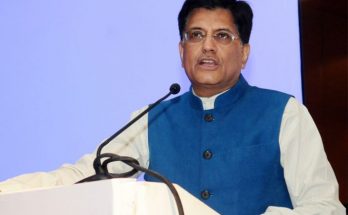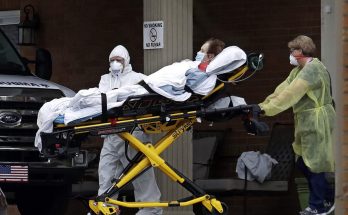 Legend has it that the nursery rhyme, ‘Here we go round the mulberry bush, the mulberry bush…on a cold and frosty morning’, was first, sung by women incarcerated at the Wakefield Prison in England while they were doing their daily exercise around the mulberry tree in the prison compound. This jingle comes to one’s mind, when one reads about the firm action taken by the Assam Government and the Union Home Minister after the killing of 81 Adivasis by the Songjit faction of the National Democratic Front of Bodoland in Kokrajhar and Sonitpur districts. It all seems so familiar and repetitive.
Legend has it that the nursery rhyme, ‘Here we go round the mulberry bush, the mulberry bush…on a cold and frosty morning’, was first, sung by women incarcerated at the Wakefield Prison in England while they were doing their daily exercise around the mulberry tree in the prison compound. This jingle comes to one’s mind, when one reads about the firm action taken by the Assam Government and the Union Home Minister after the killing of 81 Adivasis by the Songjit faction of the National Democratic Front of Bodoland in Kokrajhar and Sonitpur districts. It all seems so familiar and repetitive.
In the wake of the killings, a section of the media has sought to blame the Army, as the General Officer Commanding 4 Corps is in operational control of the Unified Command that has been in existence since 1997. What has been conveniently ignored is that it is the Chief Minister who heads the Unified Command and is supported by a strategy group headed by the State’s Chief Secretary with members from the police and intelligence community.
The efficacy of this group and its importance to the Chief Minister can be gauged from two facts, that, reportedly, specific actionable intelligence provided was ignored and that the Chief Secretary who was on leave at the time of the incident, did not feel any useful purpose to be served by his return. Thus, it would be fair to deduce that the Unified Command functioning has been restricted to coordinating counter-insurgency operations between the Army, the Central Armed police and the State police, all of this, off course, of a tactical nature.
As we have seen earlier, whether it pertains to the United Liberation Front of Asom or the National Democratic Front of Bodoland or any of the other militant group that has been using violence to gain political control, the State and Central Government has used the Army to subdue militants and to reduce the level of violence and then gone on to politically divide militants and their supporters with either promises of political power or inducements of money. There has rarely been a concerted effort to resolve the issues that have led to the problem in the first place, but to derive political advantage, that would help the ruling party continue in Government. Towards this end, much of the earlier achievements have been nullified by the political leadership and their actions that have invariably permitted many of the militant leaders to walk-free despite the heinous crimes they may have been accused of.
While the Army chief may have no reason to doubt either the genuineness or motive of the Home Minister’s directive to the Central Armed Police and paramilitary forces to flush out those responsible for the present outrage, and provide professional expertise required in ensuring that ‘operation all-out’ is a complete success, he will be well advised to consider asking the political leadership for a written directive specifying the political aim of such an operation and the end state that the Government wants to see. Based on this, the Army can formulate an appropriate response that can ensure a just and equitable resolution of the conflict, rather than another quick fix that will only exacerbate the situation in the long run.
(The author, a retired Army officer, is a consultant with Observer Research Foundation)
Courtesy: ORF
Author Profile
- India Writes Network (www.indiawrites.org) is an emerging think tank and a media-publishing company focused on international affairs & the India Story. Centre for Global India Insights is the research arm of India Writes Network. To subscribe to India and the World, write to editor@indiawrites.org. A venture of TGII Media Private Limited, a leading media, publishing and consultancy company, IWN has carved a niche for balanced and exhaustive reporting and analysis of international affairs. Eminent personalities, politicians, diplomats, authors, strategy gurus and news-makers have contributed to India Writes Network, as also “India and the World,” a magazine focused on global affairs.
Latest entries
 India and the WorldJune 26, 2025Operation Sindoor: India Sheds Restraint, Rediscovers Utility of Force
India and the WorldJune 26, 2025Operation Sindoor: India Sheds Restraint, Rediscovers Utility of Force India and the WorldJune 23, 2025BRICS summit in Rio to focus on Global South, local currency trade
India and the WorldJune 23, 2025BRICS summit in Rio to focus on Global South, local currency trade Africa InsightsJune 11, 2025New Opportunities in India-Japan Cooperation in Africa
Africa InsightsJune 11, 2025New Opportunities in India-Japan Cooperation in Africa India and the WorldMay 23, 2025Post-Operation Sindoor, India reminds Turkey, China of concerns and sensitivities
India and the WorldMay 23, 2025Post-Operation Sindoor, India reminds Turkey, China of concerns and sensitivities







